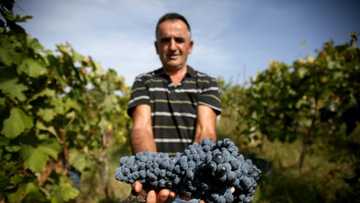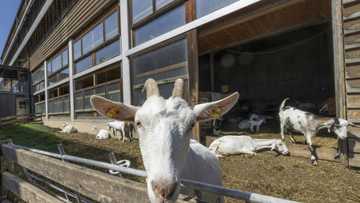Fashion Week hits Kenya's biggest urban slum
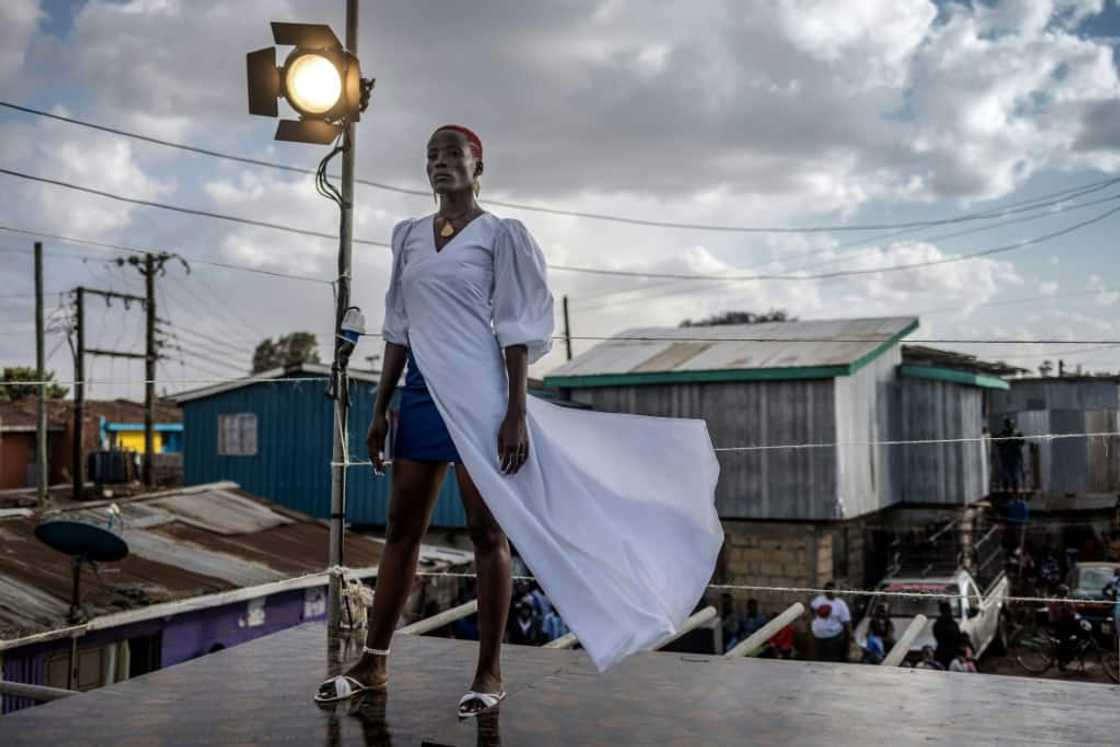
Source: AFP
PAY ATTENTION: Watch the hottest celebrity stories on our YouTube channel 'Briefly TV'. Subscribe now!
Towering models parade down a three-metre (10-foot) high catwalk overlooking the rusting tin roofs of Kibera, the Kenyan capital's biggest urban slum.
It's the second edition of Kibera Fashion Week in the heart of the sprawling area and the place is packed.
For six hours, interspersed with pop music performances, hundreds of spectators from Kibera and across the city, watch the diverse collections float by on Saturday.
"Kibera is full of style," says designer Avido, who launched the first show last year.
"People don’t get to see it because the image they have about Kibera is post-electoral violence, prostitution, drug abuse," explains the 27-year-old, whose real name is David Ochieng.
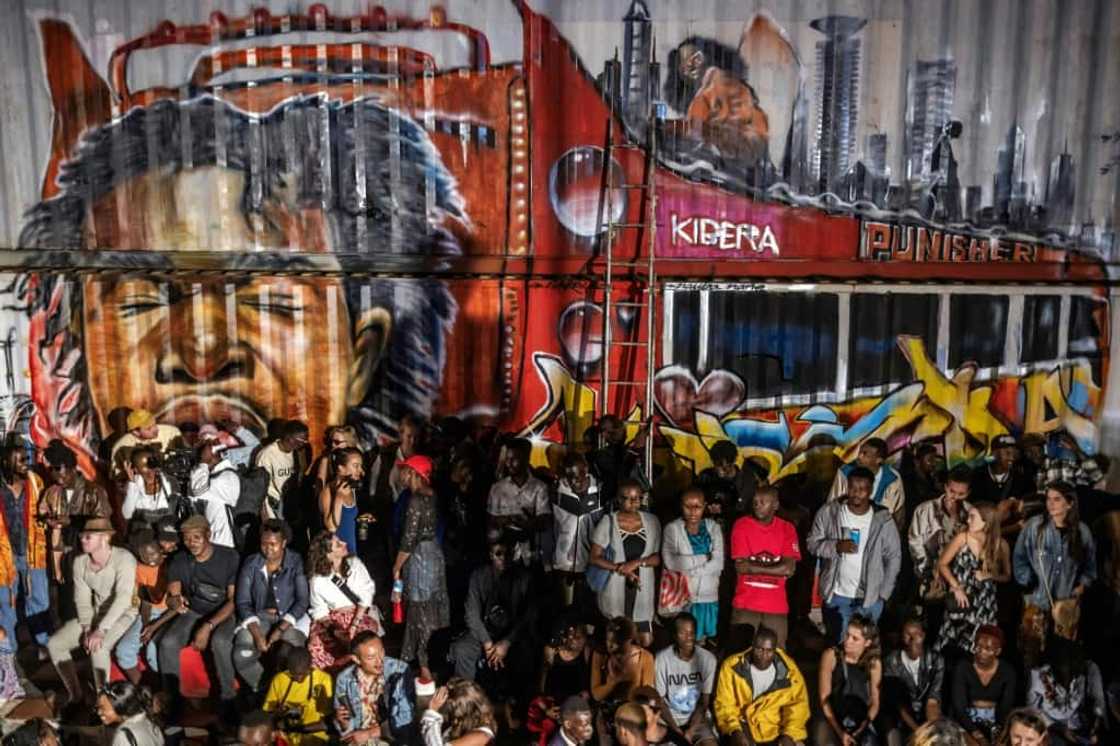
Source: AFP
PAY ATTENTION: Have you recorded a funny video or filmed the moment of fame, cool dance, or something bizarre? Inbox your personal video on our Facebook page!
"We want to show that here, we have style, creativity. What we lack here is opportunities."
Avido was born and bred in Kibera, population about 250,000, where he works.
His creations have attracted global stars from Bruno Mars to Beyonce.
Boasting a range of partnerships from the Goethe Institute to the European Union, Nairobi Design and the Masai Mbili group, the show has brought together 11 projects from 376 candidates with a wide variety of styles using cotton, jute, wool, pearls and even metal.
Empty pockets
Designer Pius Ochieng, who is not related to Avido, chose a "Mad Max" post-apocalyptic approach.
The 26-year-old harvested computer motherboards, spark plugs, LED lighting, chains, springs and other metal bits from dumps and the streets.
Back home he sewed them into clothes and produced a 15-square-metre piece lit up with rose, green and blue neons that was installed in one of the backstreets of Kibera.
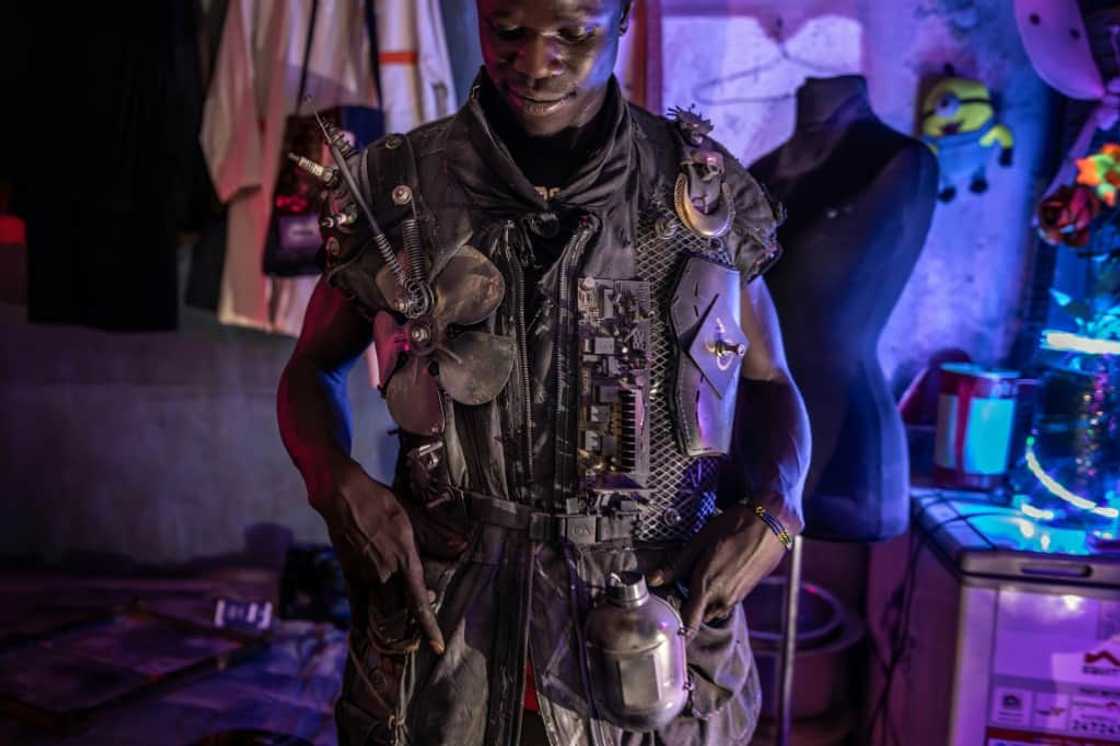
Source: AFP
Helen Wanjiru grew up in Nairobi's far from wealthy Kawangware district and has covered her clothing with broad pockets, from the back to front, including the legs.
"The pockets are big but they are empty," said the 26-year-old, who moved into fashion after working in data processing.
"It is an analogy -- a lot of youths in Kenya, they have education, they have ideas but they don’t get jobs because there is no opportunity."
The Fashion Week is quite distinct from often stuffy Western shows. The audience, mostly young, loudly acclaims the models and reserves a noisy welcome for designers who come out on to the catwalk.
'Not just about Paris and Milan'
The extravaganza also offers a chance for local fashionistas to show themselves, often in extraordinary outfits.
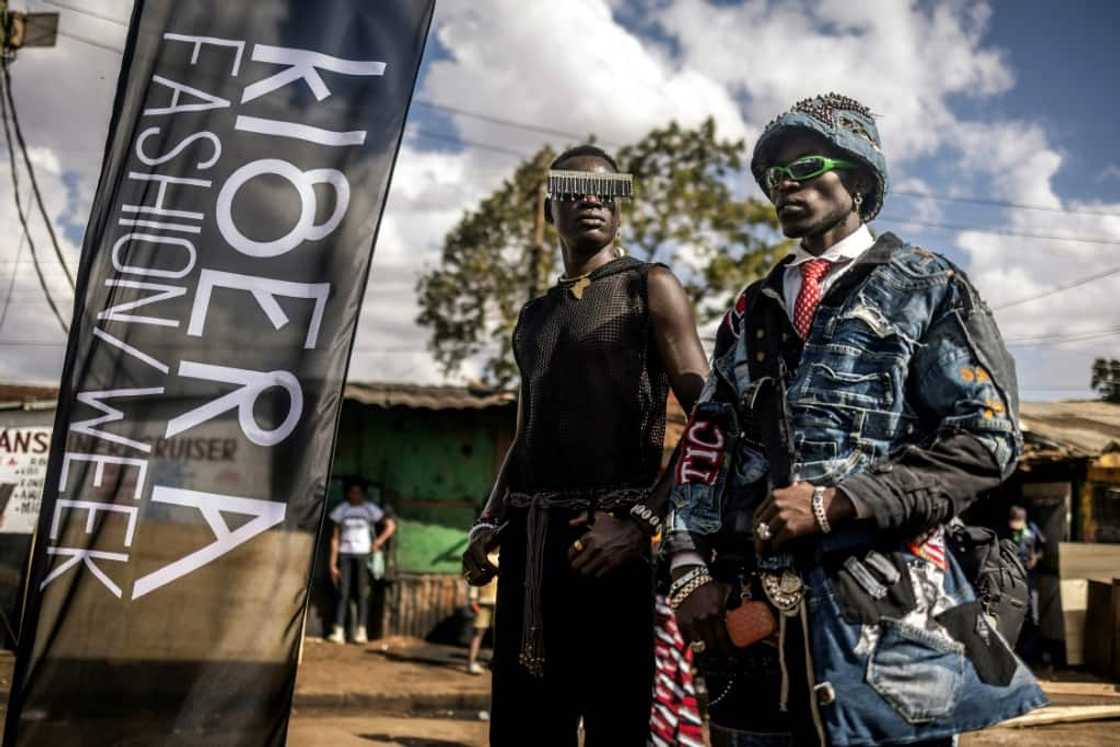
Source: AFP
But in a country used to wearing second-hand goods and a market dominated by expensive foreign imports, the haute-couture fashion world remains remote.
Avido wants to change that.
"Many people here have only seen fashion shows on TV," he said. "We want to show the people what fashion is.
"People like our parents used to think that fashion and design was not an art ... They used to think that if you were involved in fashion and design, you were like a tailor
"And if you were involved in modelling, they would see you maybe like a prostitute."
Project manager Violet Omulo said she attended the show, "to chill, have fun and discover upcoming designers.
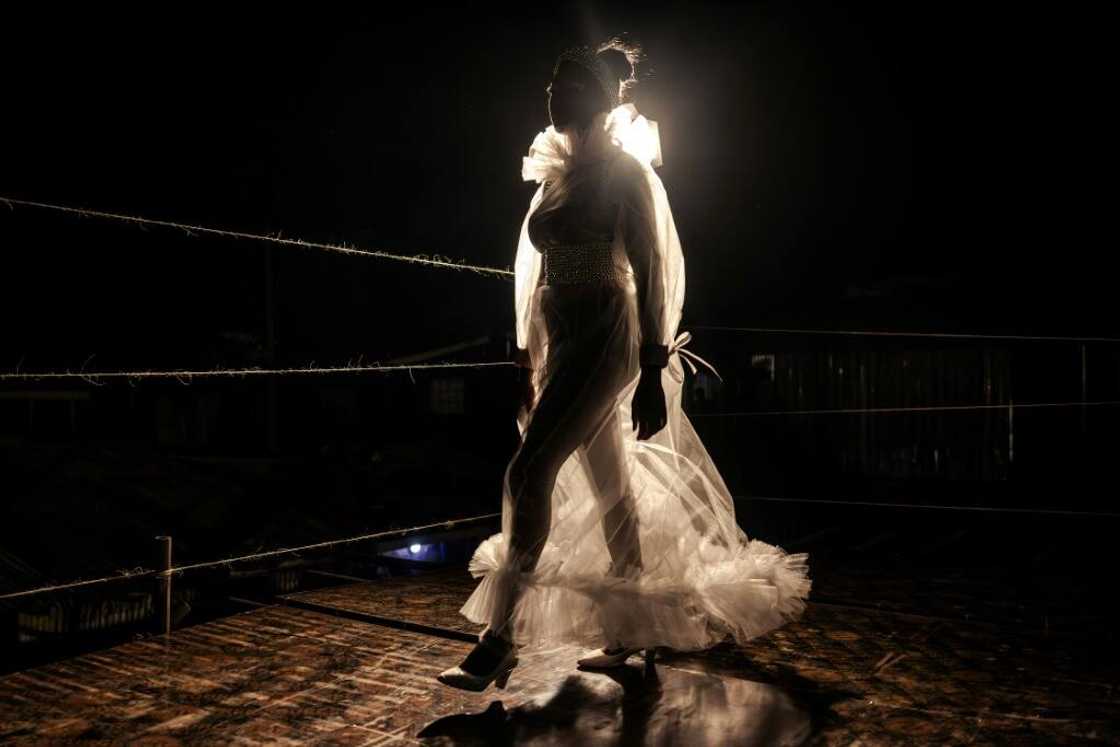
Source: AFP
"African fashion is special and it's coming up.
"We need to promote it with such events so that people know that we can be creative ... that it's not just about Paris or Milan.
"Kenya, also in Africa in general, has talented designers." she said.
PAY ATTENTION: Сheck out news that is picked exactly for YOU ➡️ click on “Recommended for you” and enjoy!
Source: AFP

